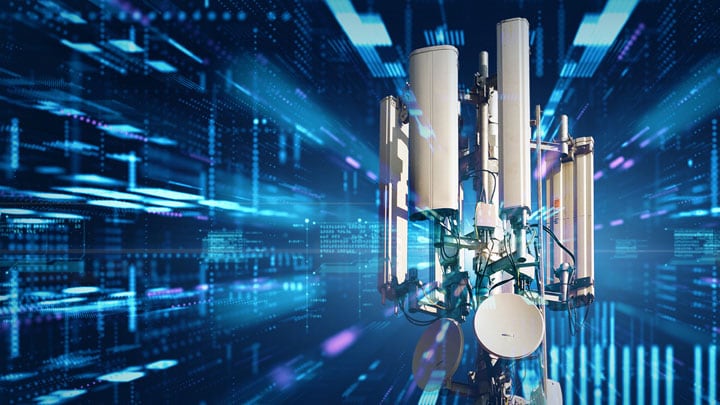Author

David Scherpenhuizen
David Scherpenhuizen is a member of the NXP Impact team, which provides inspiring stories about NXP's technological and societal impact.

During the last four years, NXP Semiconductors was involved in the OPTIMUM project, spearheaded by an international consortium consisting of 17 contributors. There were seven partners in the German use case (Comnovo GmbH, Demag Cranes and Components GmbH, Institut für Automation und Kommunikation e.V., NXP, Tarakos GmbH, Thorsis Technologies GmbH, University of Rostock). The project focused on smart manufacturing and smart material handling, equipping cranes and their operators with ultra-wideband technology, creating context awareness. This enables intelligent functions including follow-me, come to me, follow machine to optimize manufacturing processes and increase their efficiency. Additionally, different kinds of machines from different manufacturers can now communicate with each other on the shop floor.
NXP’s Industrial System Innovation Team (ISI) contributed to the OPTIMUM project providing practical solutions to cover the security needs. NXP’s i.MX application processors, for example, are an excellent basis for the OPTIMUM hardware platform.
NXP also provided its Secure Element solution EdgeLock SE050, which gave the project partners the right tool to harden the whole network communication based on Transport Layer Security (TLS), OPC Unified Architecture (UA) and the proprietary Data, Optimization, Model and Evaluation (DOME) protocol. EdgeLock SE050 helps enable communications, and also acquires the initial communication certificates for OPTIMUM devices. NXP´s solution makes it possible to implement a seamless and easy-to-handle provisioning process for factory operators.
NXP enabled the webservice as well as the Certificate Authority for the user identification on the backend system of OPTIMUM. After the operator device establishes a TLS-secured connection to the webservice on the backend, a two-factor authentication occurs using a near-field communication (NFC) badge in combination with either password or fingerprint. For the NFC badge, the team opted for NXP's MIFARE DESFire card, which enables user authentication in a rough environment. The operator device can be a tablet or smartphone having the OPTIMUM human machine interface (HMI) app running on it.
Once the HMI app on the operator device is started, the user is asked to present their badge. After reading and checking the user-related information from the badge, the web-service asks for the user’s password as the second factor. In case the operator device has a fingerprint sensor, the password must be provided only once and for future logins, the fingerprint is sufficient.
After this verification process, a time-restricted certificate is created, containing the authorizations granted to the user in the system. This so-called short-lived certificate is provisioned to the operator device. The user is therefore enabled for an entire working day to use the device and service according to the granted authorizations.
NXP's Industrial System Innovation team also provided initial implementations of backend services such as a webservice and a Certificate Authority. The collaboration of the consortium within OPTIMUM, a project from the Eureka Research and Development and Innovation (R&D&I) Cluster for software innovation ITEA, was a great success. During the whole project, there was a very good team spirit and drive to solve the—sometimes challenging—tasks. In the end, the NXP team created a very good basis for future smart solutions in industrial material handling of Industry 4.0.
For the reviewers of OPTIMUM, the results were impressive, telling the consortium, “the project has clearly overachieved. It shows an outstanding achievement in human capital, dissemination, standardization. It has really demonstrated in real life use cases the digital transformation expected with Industry 4.0. The management of the project has been excellent, and despite COVID-19, the project has a very strong dissemination.”
Tags: Industrial, Technologies

Senior Writer/Editor
David Scherpenhuizen is a member of the NXP Impact team, which provides inspiring stories about NXP's technological and societal impact.

September 10, 2021
by Megan Faust

September 29, 2021
by Joseph Byrne

September 29, 2021